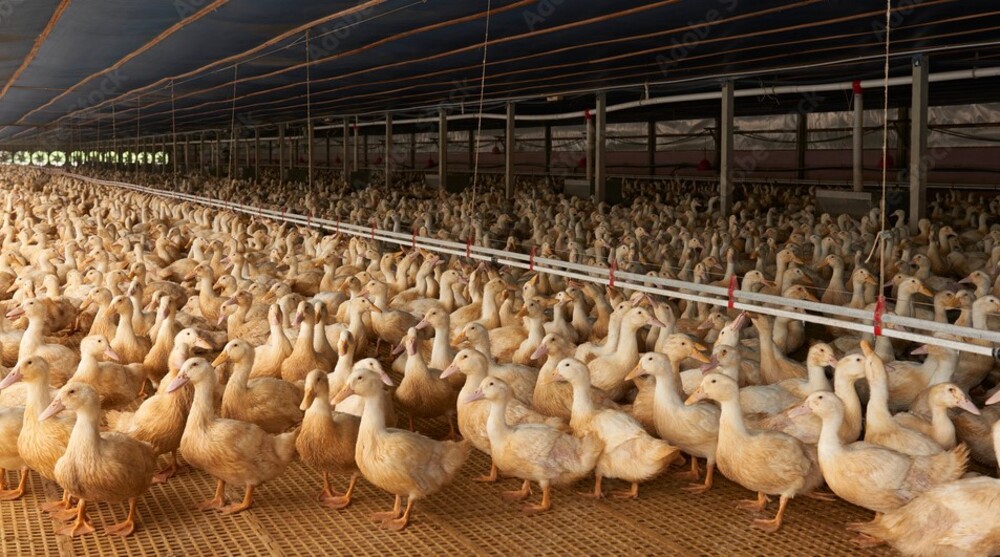

The floor of the shelter should be covered with absorbent materials such as straw or wood shavings to keep it dry. Regular cleaning and replacement of the bedding material are important for hygiene maintenance and prevent the build-up of harmful pathogens like duck plague. Provide nesting boxes for laying ducks to ensure they have a comfortable and secure place to lay eggs.
A balanced diet is good for the health and productivity of your ducks. They can feed on a variety of food sources, including grains, vegetables, and commercial poultry feeds.They can also be supplemented with locally available feeds such as maize, rice bran, fishmeal, and vegetable scraps.
Ensure that the ducks have constant access to clean and fresh water, as water is good for their digestion and overall health. Ducks also need water for cleaning their beaks and feathers. If possible, provide a shallow pond or trough where ducks can swim and splash, which helps in maintaining their plumage and prevents external parasites.
Maintaining the health of your ducks is essential for a successful duck rearing business. Regular health checks and timely vaccinations are necessary to prevent diseases such as duck plague, duck cholera, and avian influenza. Consult with a local veterinarian to establish a vaccination schedule and get advice on disease prevention and control.
Pay attention to the signs of illness, which may include loss of appetite, abnormal droppings, and respiratory issues. Isolate any sick ducks immediately to prevent the spread of disease and seek veterinary assistance. Implement biosecurity measures such as disinfecting equipment, restricting access to the duck house, and ensuring proper waste disposal to minimize disease risks.
For duck rearing aimed at egg production, it is important to select high-yielding breeds such as Khaki Campbell, Indian Runner, and Pekin. These breeds are known for their prolific egg-laying capabilities. Provide a conducive environment with proper lighting, as ducks need around 14-16 hours of light per day to maintain optimal egg production. Using natural daylight instead of artificial lighting during the days can be more beneficial.
Monitor your ducks' laying patterns and collect their eggs promptly to avoid breakage and contamination. Clean the eggs gently and store them in a cool, dry place. For breeding purposes, maintain a healthy ratio of drakes (male ducks) to ducks (female ducks) to ensure successful fertilization.
Diversifying your products by selling live ducks, ducklings, and value-added products like salted duck eggs can also enhance your profitability. Keep accurate records of your expenses, sales, and production data to monitor your business performance and make informed decisions.
Sustainable duck rearing practices not only benefit your business but also the environment. Ducks can be integrated into existing farming systems, where they help control pests and weeds and contribute to soil fertility through their droppings. Practice rotational grazing if you have access to a larger area, allowing ducks to feed naturally and reducing feed costs.

















